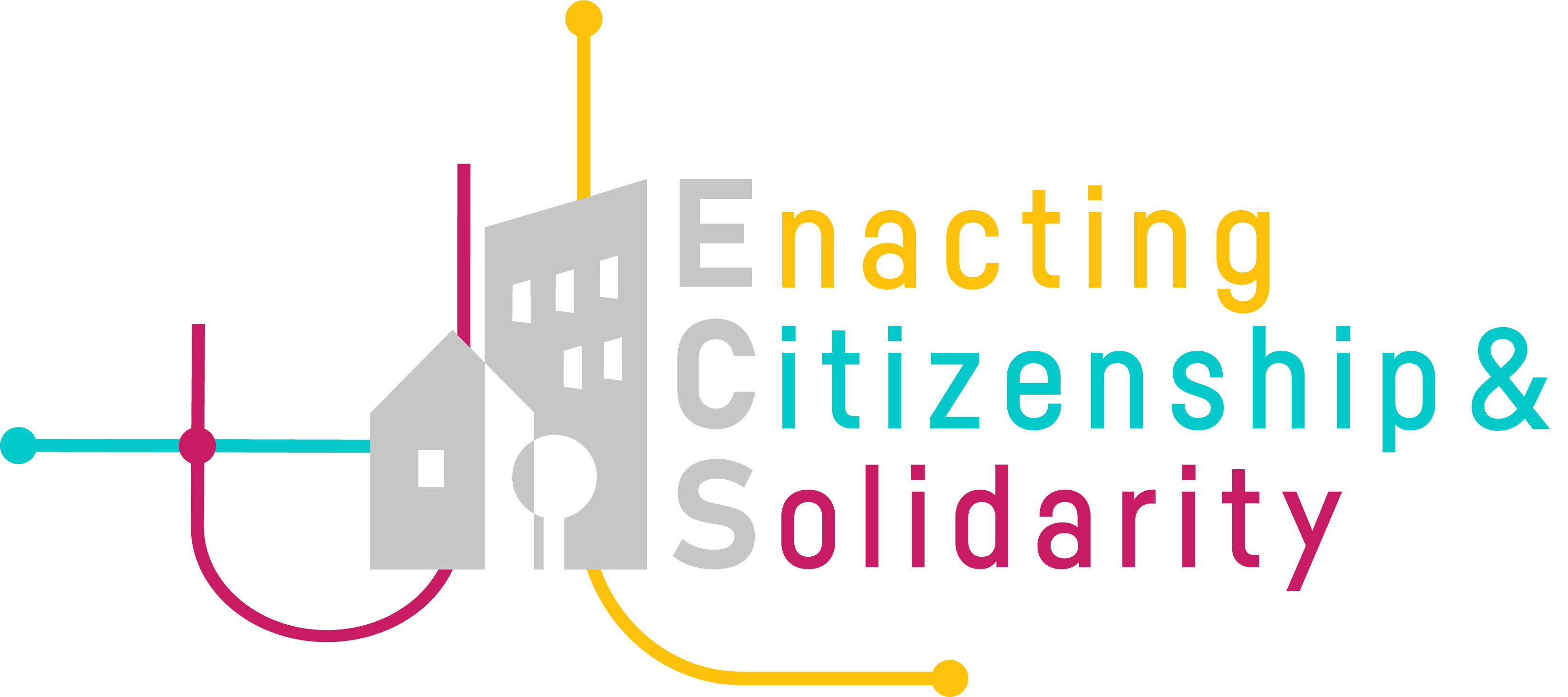The consortium consists of researchers from 5 European cities: Hamburg (Germany), Aalborg (Denmark), Bern (Switzerland), Florence (Italy) and Ljubljana (Slovenia).
Working group Hamburg (University of Hamburg):
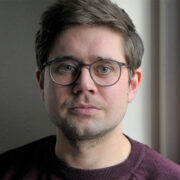
Helge Schwiertz is a postdoctoral research associate at the Chair of Sociology and Social Theory at Universität Hamburg and corresponding member of the Institute for Migration Research and Intercultural Studies (IMIS) at Osnabrück University. He leads the international research project “Enacting Citizenship and Solidarity in Europe ‘From Below’: Local Initiatives, Intersectional Strategies, and Transnational Networks [ECSEuro]” (funded by the VolkswagenStiftung, 2022-2025). Furthermore, he is a founding editor of movements. Journal for Critical Migration and Border Regime Studies and active in the “Network for Critical Border and Migration Regime Research” (kritnet) that is situated at the intersection of academia, art, and activism. His key research areas are social and political theory, migration and racism, social movements and urban protests, citizenship, solidarity, and radical democracy. He has published articles in journals like International Political Sociology, Critical Sociology, Philosophy & Social Criticism, Yearbook Practical Philosophy in a Global Perspective, Citizenship Studies and Zeitschrift für Politikwissenschaft. Book publications include: “Inclusive Solidarity and Citizenship along Migratory Routes in Europe and the Americas” (Routledge, 2021, with Helen Schwenken); “Migration und radikale Demokratie” [Migration and Radical Democracy] (transcript, 2019).
Contact: helge.schwiertz@uni-hamburg.de
Twitter: @HelgeSchwiertz
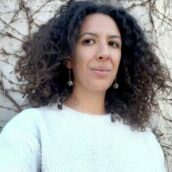
Mouna Maaroufi is a postdoctoral research associate at the Chair of Sociology and Social Theory at Universität Hamburg and member of the Study Group »Migration, Labour, Digitalisation and Racism« at the Berlin Institute for Migration and Integration Research (BIM) at Humboldt University. She has completed a PhD at Leuphana University Lüneburg on the contested transformations of infrastructures of labour market participation since the ‘summer of migration’. During her Phd she also worked in labour rights advisory services for migrant workers. Her research deals primarily with infrastructures of migration and labour regimes, racialisation and precarisation as well as autonomous labour and social struggles and anti-racism.
Contact: maaroufi@europa-uni.de
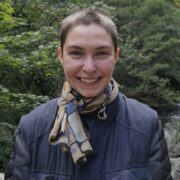
Kara MacDougall is a student researcher and a BA student of sociology and anthropological studies in culture and history at the Úniversity of Hamburg. So far Kara has focused on migration regimes, social reproduction in social movements and resistance within the legacies and developments of colonialism and capitalism.
Contact: kara.macdougall@studium.uni-hamburg.de
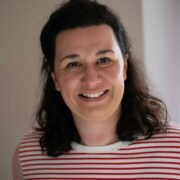
Anika Hummel is running the ECSEuro office at the University of Hamburg. She is the contact person for the consortium and external persons in any administrative regards concerning the project.
Contact: ecseuro-office.wiso@uni-hamburg.de
Working group Aalborg (University of Aalborg):
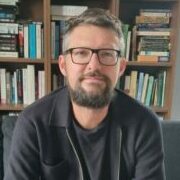
Martin Bak Jørgensen is Professor in Processes of Migration at demos at the Department for Culture and Learning, Aalborg University, Denmark. He works within the fields of sociology, political sociology and political science. He has published the books Politics of Dissent (Peter Lang, 2015), Solidarity Without Borders: Gramscian
perspectives on migration and civil society alliances (Pluto Press, 2016), and Solidarity and the ‘Refugee Crisis’ in Europe (Palgrave, 2019), all co- authored with Óscar García Agustín. He has published articles in the journals: Internal Migration Review, Critical Sociology, Journal of International Migration and Integration and British Journal of International Politics.
Contact: martinjo@ikl.aau.dk

Franz Bernhardt is a Political Geographer who is working as Postdoctoral Research Fellow at Aalborg University on the ‘Enacting Citizenship and Solidarity: From Below’ research project. He has worked most recently as a ESRC Wales Postdoctoral Research Fellow in the Department of Geography at Swansea University. He holds a Bachelor of Arts with Honours in Politics from the University of Stirling, a Master of Letters in International Political Theory from the University of St. Andrews, as well as a Ph.D. in Human Geography from Swansea University. For his doctoral thesis, he examined how urban, regional, and national imaginaries of community effected commitments of hospitality towards refugees and asylum seekers. His research on the political geographies of migration, cities, nationalism, and citizenship has now been published in peer-reviewed journals such as Cultural Geographies and Hospitality & Society and will appear as book chapters in the edited collections Collective Movements and Emerging Political Spaces and Introducing Human Geographies (both Routledge, forthcoming 2023). His last postdoctoral project examined how the political strive for national independence in sub-state contexts effects attitudes towards the politics of asylum.
Contact: franzb@ikl.aau.dk
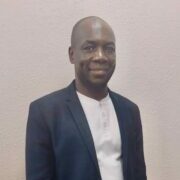
Mashudu Salifu is a Research Assistant at the Department of Culture and Learning, Aalborg University, Denmark. He holds two master’s degrees, MA in Culture, Communication and Globalization with Specializing in Global Politics, Migration and Movement, and MSc in Development and International Relations awarded by Aalborg University, Denmark, and BA in Political Science with Philosophy awarded by University of Ghana, Legon. He is a new member of DEMOS and attached to the project Enacting Citizenship and Solidarity in Europe „From Below“: Local Initiatives, Intersectional Strategies, and Transnational Networks [ECSEuro]. His research interests include Global mobility decisions, Covid-19 pandemic, Urban Sanctuary, Democracy, Migration, and Integration
Contact: mashudus@ikl.aau.dk

Paola Buconjic is a research assistant at Aalborg University within the DEMOS group at the Institute for Culture and Learning. Her academic journey has been marked by a focus on Culture, Communication, and Globalization, with a specialization in International Migration and Ethnic Relations, leading to the completion of her MA in 2021 at Aalborg University. Her research areas are migration, integration of migrants and refugees and civil society solidarity.
Contact: pabu@ikl.aau.dk
Working group Bern (University of Bern):
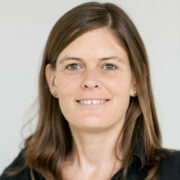
Sarah Schilliger is a senior researcher at the Interdisciplinary Center for Gender Studies at the University of Bern and lecturer in the international master program “Social Work as a Human Rights Profession” in Berlin. Her key research areas are migration studies, labor studies, feminist theory, care, social movements, citizenship, urban infrastructures of solidarity.
She is Co-PI of the international research project “Enacting Citizenship and Solidarity in Europe ‘From Below’: Local Initiatives, Intersectional Strategies, and Transnational Networks [ECSEuro]” (funded by the VolkswagenStiftung, 2022-2025) and leads the case studies in Switzerland. She is member of the scientific board of Rosa Luxemburg Foundation and active in the “Network for Critical Border and Migration Regime Research” (kritnet) that is situated at the intersection of academia, art, and activism.
Recent publications include: “Civil society organisations engaged with illegalised migrants in Bern and Vienna: co-production of urban citizenship” (with Ilker Atac, in: Jørgensen/Schierup (eds.), Contending Global Apartheid: Transversal Solidarities and Politics of Possibility. Brill 2022); “Care Crisis and Care Fixes under Covid-19: The Example of Transnational Live-in Care Work (Social & Cultural Geography 2022, with Karin Schwiter and Jennifer Steiner); “Challenging Who Counts as a Citizen. The Infrastructure of Solidarity Challenging Racial Profiling in Switzerland (Citizenship Studies 2020).
Contact: sarah.schilliger@unibe.ch

Natascha Flückiger studies Social Anthropology and Gender Studies at the University of Bern. Taking the example of the Medina Community Centre on Bern’s Schützenmatte, she is ethnographically exploring how solidarity is locally constructed and maintained through everyday practices. In addition to her own research, Natascha Flückiger is integrated into the Swiss project team as a research assistant.
Contact: natascha.flueckiger@unibe.ch
Working group Florence (Scuola Normale Superiore):
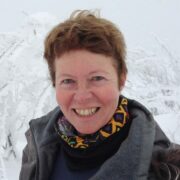
Donatella della Porta is professor of political science, founding dean of the Faculty of Political and Social Sciences and Director of the PhD program in Political Science and Sociology at the Scuola Normale Superiore in Florence, where she also leads the Center on Social Movement Studies (Cosmos). Among the main topics of her research: social movements, political violence, terrorism, corruption, the police and protest policing. She has directed a major ERC project Mobilizing for Democracy, on civil society participation in democratization processes in Europe, the Middle East, Asia and Latin America. In 2011, she was the recipient of the Mattei Dogan Prize for distinguished achievements in the field of political sociology; in 2021, she received the Research Awards of the Alexander von Humboldt Stiftung in recognition of her lifetime’s research activities. In 2022, she has been nominated International Honorary Member of the American Academy of Arts and Sciences. She is Honorary Doctor of the universities of Lausanne, Bucharest, Goteborg, Jyvaskyla and the University of Peloponnese.
Contact: donatella.dellaporta@sns.it

Angela Adami is a postdoctoral researcher at the Faculty of Political and Social Sciences of the Scuola Normale Superiore in Florence (Italy). She holds a Ph.D. in Political Science and Sociology from the Scuola Normale Superiore, where she worked on the role of collective memory in shaping migrants‘ movements, under the supervision of Donatella della Porta and Lorenzo Zamponi. She is a member of the Centre on Social Movement Studies (COSMOS). Her main research interests include migrant movements and countermovements and the study of memory, biographies and subjective time.
Contact: angela.adami@sns.it

Contact: carlotta.caciagli@polimi.it

Joana Lilli Hofstetter is a postdoctoral researcher at the Faculty of Political and Social Sciences of the Scuola Normale Superiore in Florence, Italy, and a member of the Center on Social Movement Studies (Cosmos). She completed her PhD at the Scuola Normale Superiore where she worked on the collective self-organisation of sex workers and prostitution politics in Germany under the supervision of Donatella della Porta. Joana is also co-founder and board member of the German Association for Sex Work and Prostitution Research (https://gspf.info/). Her main research areas are social movements organising at the intersection of gender, sexuality and labour, as well as feminist theories, participatory methodologies, and research ethics.
Contact: joana.hofstetter@sns.it
Working group Ljubljana (The Peace Institute, University of Ljubljana):
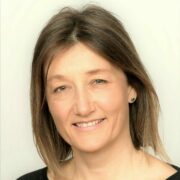
Mojca Pajnik is a senior research advisor at the Peace Institute in Ljubljana and an Associate Professor at the Faculty of Social Sciences, Department of Media and Communication, University of Ljubljana. Her scholarship resides at the intersection of political theory, media and communication, social movements and political participation. She is head of the research programme “Equality and Human Rights in Times of Global Governance” at the Peace Institute (financed by the Slovenian Research Agency, 2020-2026), a partner to VolkswagenStiftung ECSEuro project (2022-2025), to Norface POPBACK, Populist Backlash, Democratic Backsliding, and the Crisis of the Rule of Law in the European Union (2021-2023, https://www.popback.org/) and to Horizont 2020 FIERCE, Feminist Movements Revitalizing Democracy in Europe (2022-2025, https://fierce-project.eu/). Mojca was awarded for scientific excellency from the Faculty of Social Sciences, University of Ljubljana in 2014 and in 2021 for the “excellent in science” by the Slovenian Research Agency, for the article “Engendering Media Work: Institutionalizing the Norms of Entrepreneurial Subjectivities”, published in Journalism (co-authored by M. Hrženjak). Her books include Populism and the Web: Communicative Practices of Parties and Movements in Europe (co-edited with B. Sauer, Routledge, 2017), and the recent publication in Journalism Studies, Javnost-The Public, Sexuality Research & Social Policy, Communications, South-Eastern Europe etc. She is member of editorial board of Global Media and Communication and of Journal of Alternative and Community Media.
Contact: mojca.pajnik@mirovni-institut.si
More info: https://www.fdv.uni-lj.si/en/news-and-information/contacts/teachers/info/mojca-pajnik/
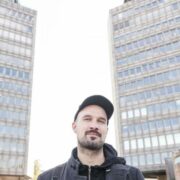
Sandi Abram holds a PhD in Social and Cultural Anthropology from the University of Eastern Finland. Between 2017-2021 he participated as doctoral researcher in the ERC-funded project SENSOTRA – Sensory Transformations and Transgenerational Environmental Relationships in Europe 1950-2020 (ERC-2015-AdG 694893). In 2020 he was awarded the Finnish Cultural Foundation scholarship. Between 2012-2020, he was a member of the editorial board of the Journal for the Critique of Science and Imagination, and New Anthropology. In 2022, he co-edited (with Blaž Bajič and Rajko Muršič) the book Senses of Cities: Anthropology, Art, Sensory Transformations (Ljubljana University Press). His main research interests are in the fields of aestheticization, sensory and urban studies, atmospheres, non-institutional creative practices, multimodal and collaborative ethnography. At the Peace Institute, Institute for Contemporary Social and Political Studies, Ljubljana, he works as a postdoctoral researcher. He is also a postdoctoral researcher at the Department of Ethnology and Cultural Anthropology, University of Ljubljana.
Contact: sandi.abram@mirovni-institut.si
ResearchGate: https://www.researchgate.net/profile/Sandi-Abram
Orchid: https://orcid.org/0000-0002-8257-4352
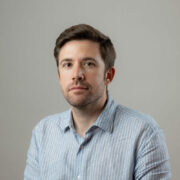
Marko Ribać is an assistant and a postdoctoral researcher at The Peace Institute in Ljubljana. He started his research work at The Peace Institute as a young researcher and a PhD student in 2014 and he defended his doctoral thesis on the communicative practices of Slovenian social movements and activist collectives in 2018 (Communication Sciences department, Faculty of Social Sciences, University of Ljubljana). Beside his theoretical interest in social, political and theories of communication his main research topics range from structural transformations of political, journalistic and economic sphere, populism, authoritarianism and illiberalism to popular protests, social movements and alternative media. Thus far he mainly published his research findings in Slovenian academic journals: Javnost/The public, Družboslovne razprave, Annales, Časopis za kritiko znanosti etc.
Contact: marko.ribac@mirovni-institut.si
Academia.edu profile: https://uni-lj.academia.edu/MarkoRiba%C4%87
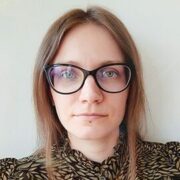
Tjaša Turnšek is a research assistant at Peace Institute and PhD candidate at the Communication science department (Faculty of Social Sciences, University of Ljubljana). She holds a MA in cultural studies and bachelor’s degree in sociology. She obtained her master’s degree with thesis Critical Discourse Analysis: Media Representation of the Refugee awarded by the Professor Klinar Fund Award. She has participated in research projects that addressed critical discourse analysis and media representation which focused on discrimination of specific target groups. Her current academic work concerns right-wing and media populism, and the ownership of Slovenian media structures. From 2018 to 2020, she worked as project manager in NGO focusing on creating awareness campaigns.
Contact: tjasa.turnsek@mirovni-institut.si
